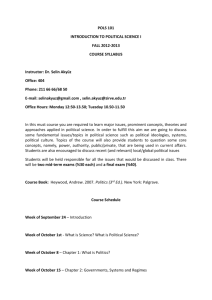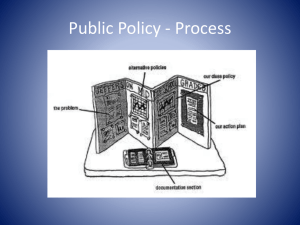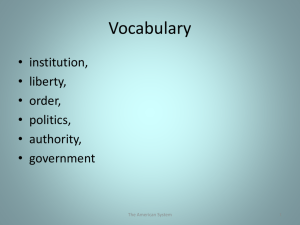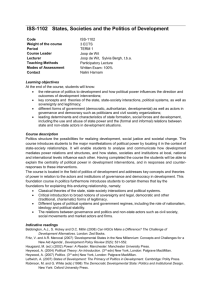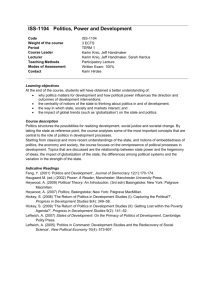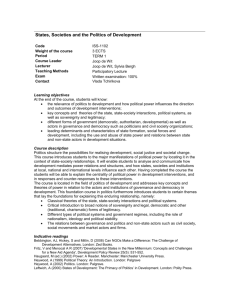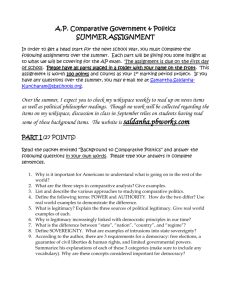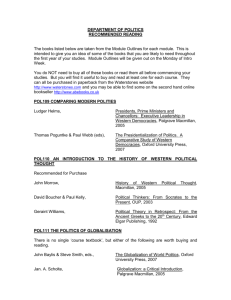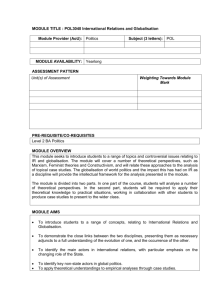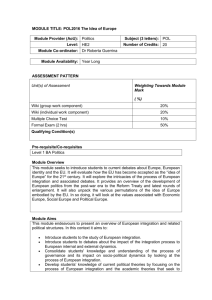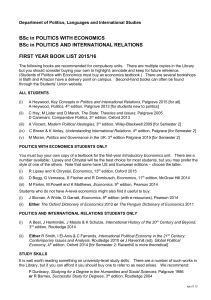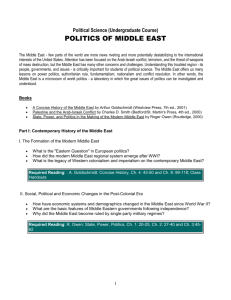Politics, Power and Development
advertisement
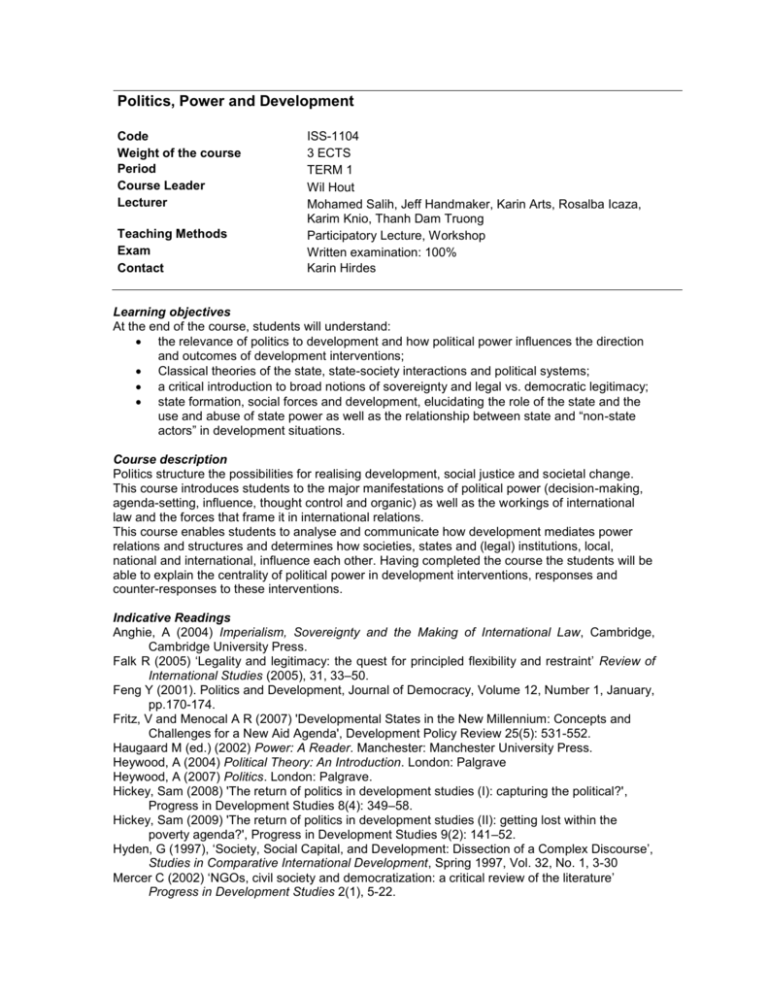
Politics, Power and Development Code Weight of the course Period Course Leader Lecturer Teaching Methods Exam Contact ISS-1104 3 ECTS TERM 1 Wil Hout Mohamed Salih, Jeff Handmaker, Karin Arts, Rosalba Icaza, Karim Knio, Thanh Dam Truong Participatory Lecture, Workshop Written examination: 100% Karin Hirdes Learning objectives At the end of the course, students will understand: the relevance of politics to development and how political power influences the direction and outcomes of development interventions; Classical theories of the state, state-society interactions and political systems; a critical introduction to broad notions of sovereignty and legal vs. democratic legitimacy; state formation, social forces and development, elucidating the role of the state and the use and abuse of state power as well as the relationship between state and “non-state actors” in development situations. Course description Politics structure the possibilities for realising development, social justice and societal change. This course introduces students to the major manifestations of political power (decision-making, agenda-setting, influence, thought control and organic) as well as the workings of international law and the forces that frame it in international relations. This course enables students to analyse and communicate how development mediates power relations and structures and determines how societies, states and (legal) institutions, local, national and international, influence each other. Having completed the course the students will be able to explain the centrality of political power in development interventions, responses and counter-responses to these interventions. Indicative Readings Anghie, A (2004) Imperialism, Sovereignty and the Making of International Law, Cambridge, Cambridge University Press. Falk R (2005) ‘Legality and legitimacy: the quest for principled flexibility and restraint’ Review of International Studies (2005), 31, 33–50. Feng Y (2001). Politics and Development, Journal of Democracy, Volume 12, Number 1, January, pp.170-174. Fritz, V and Menocal A R (2007) 'Developmental States in the New Millennium: Concepts and Challenges for a New Aid Agenda', Development Policy Review 25(5): 531-552. Haugaard M (ed.) (2002) Power: A Reader. Manchester: Manchester University Press. Heywood, A (2004) Political Theory: An Introduction. London: Palgrave Heywood, A (2007) Politics. London: Palgrave. Hickey, Sam (2008) 'The return of politics in development studies (I): capturing the political?', Progress in Development Studies 8(4): 349–58. Hickey, Sam (2009) 'The return of politics in development studies (II): getting lost within the poverty agenda?', Progress in Development Studies 9(2): 141–52. Hyden, G (1997), ‘Society, Social Capital, and Development: Dissection of a Complex Discourse’, Studies in Comparative International Development, Spring 1997, Vol. 32, No. 1, 3-30 Mercer C (2002) ‘NGOs, civil society and democratization: a critical review of the literature’ Progress in Development Studies 2(1), 5-22.
